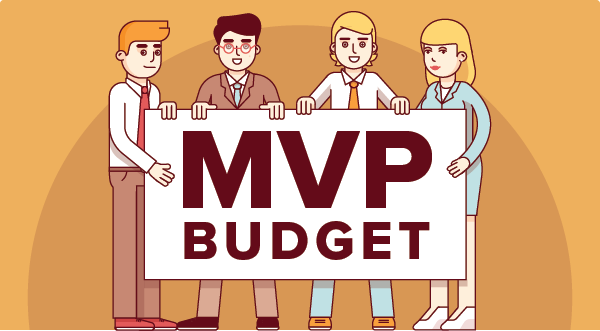Wil Schroter

App development is not a straightforward process, despite how much "process" developers add to the equation. There are basically 3 things that are never working in our favor:
First, the idea is in our head, not in the developers head, so the translation is a huge, time consuming challenge.
Second, we're building an app that has never existed before, so we don't actually know how people are going to use it or what features are required.
And last, we're assuming that our developer is capable of completing a working app. All of these are giant issues that should give us pause (and keep our cash in the bank for a minute!).
Focus on Milestones
We have to think about building an app in stages — not the whole enchilada all at once. To do that, we have to determine what's the absolute minimum functionality we need in order to get this in front of users and see how they react.
Building the entire vision all up front, in one fell swoop, is a terrible idea until we know how the world will react.
Start With Less Than $10K
Let's assume our first foray into building a product is going to be as much an education as a final product. Therefore, let's not spend all of our money (or what little we have) on one iteration of the product.
Let's budget no more than $10K (and whatever milestone that buys us) so that we have a way to stop, analyze, and decide if it's worth proceeding.
We can always spend more — but we can't get it back.
Assume Our Developer is an Idiot
Developers are smart, capable people who have collectively changed the world as we know it. But let's assume ours is an idiot.
Why?
Because by lowering our expectations, it'll force us to over-communicate, set realistic deadlines, and think about a Plan B in case they never deliver (which happens. A lot).
Anyone who thinks that just telling a developer what you want is tantamount to getting it built has never built software before. It's a constant battle (on both sides) to push the marshmallow that is our idea through the keyhole that is the software development process.
No one has ever just had an app idea and gotten it built flawlessly (unless they were a developer, and even then...) so if we go into this process with eyes wide open and wallet half shut, we'll be on the right side of the equation.
In Case You Missed It
How to Hire a Developer When You’re Not Technical. Have a great startup idea? Great! Now you need someone to build it. If you’re not technical and don’t want to learn to code, how do you hire a great developer to build your MVP?
What do Founders Need to Know About the Product Development Process? For some Founders, the product development process may look like a haphazard “drunken walk,” but others prefer a more structured approach.
Building a Better MVP. How to say "No" to the wrong things so you can say "YES!" to the right thing.
Find this article helpful?
This is just a small sample! Register to unlock our in-depth courses, hundreds of video courses, and a library of playbooks and articles to grow your startup fast. Let us Let us show you!
Submission confirms agreement to our Terms of Service and Privacy Policy.
Already a member? Login
Start a Membership to join the discussion.
Already a member? Login

I can additionally recommend to allocate some basic features that you want to be present in your MVP and investigate how much do some app development companies charge for those. Usually, they can share rough estimations per fundamental app functionality in a form of hours required for app development, just like here - https://topdevs.org/blog/app-development-costs. Surely, each development company may calculate the development time differently and each has their own hourly rate, but you will have an approximate cost for your MVP.